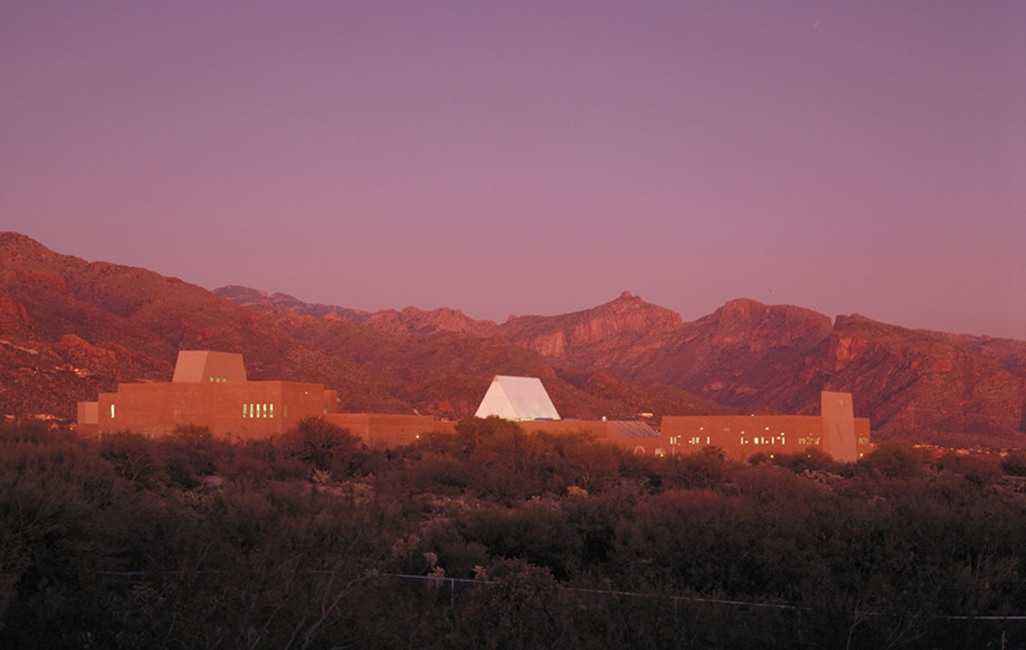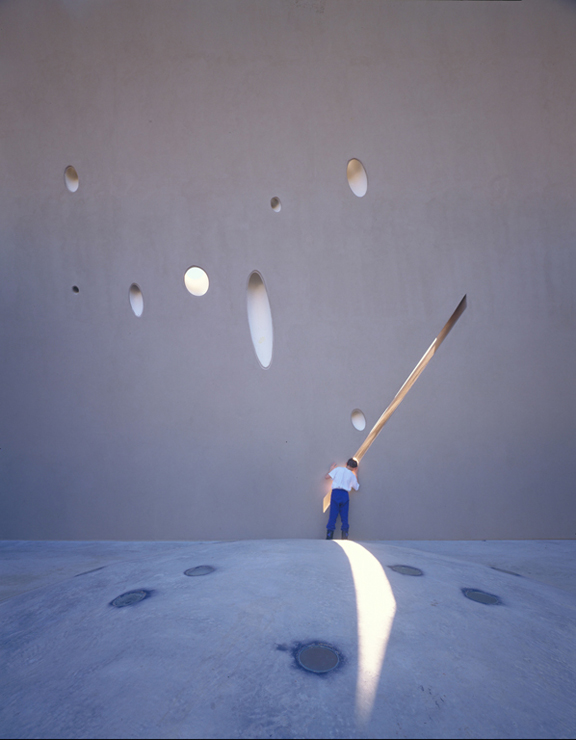
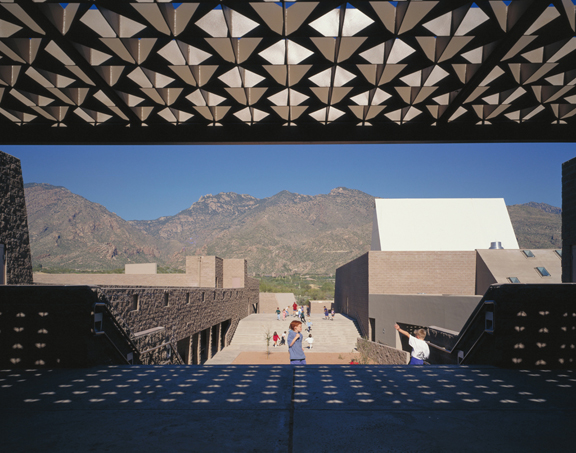
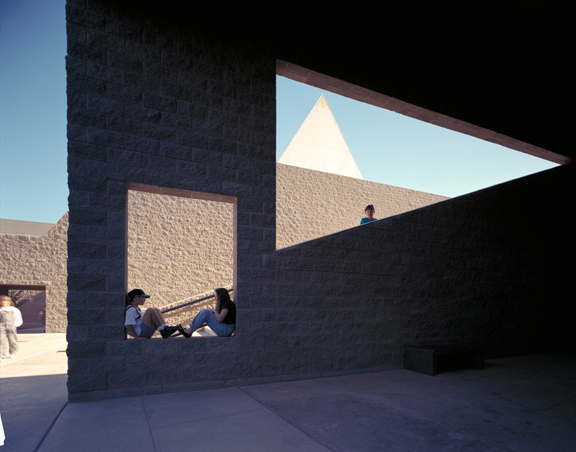
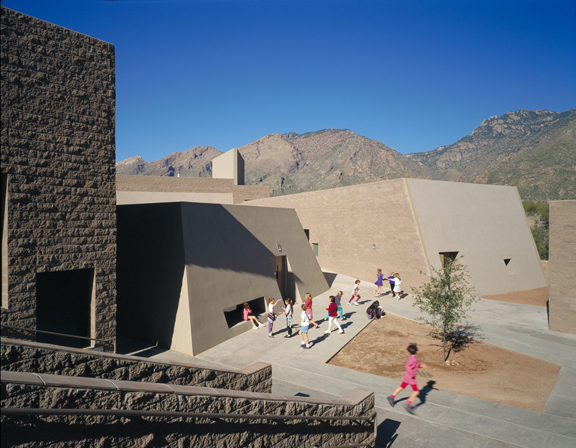
|
Ventana
Vista Elementary School
Catalina Foothills School District, Tucson,
Arizona
1995
A fragile desert ecosystem exists at
the base of the Catalina Mountains. This place of ancient saguaro and
cholla, cacti skeletons and abandoned snake skins, delicate palo verde
and silty washes is the site for the Catalina Foothills School District’s
fourth elementary school. The intricate microcosm of the site offers an
intriguing metaphor for the conception of an elementary school. The series
of trails and markers etched into the land surrenders clues about the
origins of the site. The project in the same way relates a narrative through
architecture. Like an ancient ruin, this sunken city does not compete
with the landscape; it becomes the landscape, with a single ‘nomadic’
tent/sunshade at its hub.
Through a progressive and varied methodology, the school district wanted
to create an educational setting in which a variety of ‘unassigned’
areas become laboratories for learning. These areas are determined by
the site and relate the learning process to the landscape and ‘awareness’
of place. Completed in 1995 for 600 pupils, the school creates a community
of children: each student belongs to his or her own community and resides
in a specifically demarcated village.
The routes to and from the villages are strewn with recognizable markers
to guide the children in their journeys. The second and third graders
inhabit the kingdom of astronomy and space and their courtyard is organized
about a solstice wall. Kindergarten and first graders have spy holes interconnecting
their classrooms while occupy the realm of the subterranean turtle with
its shell perforated with desert skylight. The fourth and fifth grade
village occupies the high ground of the sloping site and has its own graffiti
wall.
Throughout this children’s city, opportunities for outdoor assembly
and instruction are provided, with each village having its own courtyard
that will be personalized by its occupants. In the entry court, stepped
bleachers also rise for school-wide performances.
The school encourages exploration of the desert environment and creates
a journey through a children’s city of imagination and memory.
In association with Executive Architect
Burns and Wald-Hopkins Architects
|
